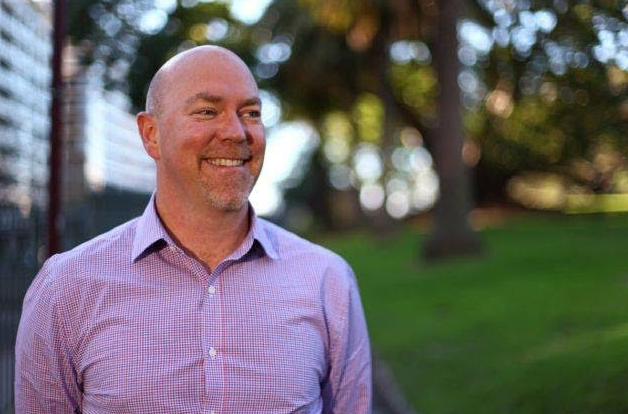Head to Head: Does a client have the right to see its agency’s media pitch?
In this series, Mumbrella invites the industry’s senior PR professionals to share their opposing views on the industry’s biggest issues. This week, Liam Fitzpatrick, head of communications at Commswork, goes head to head with Opr’s Graham White and M+C Partners’ CEO Justin Kelly on whether clients should be able to see their agency’s media pitch.
Should clients be able to see what their agency is going to pitch to the media? Commswork’s head of communications and founder Liam Fitzpatrick says they absolutely should be able to in order to ensure both the client and the agency are aligned and projecting the same message.
Graham White, group managing director of technology and business at Opr, argues it’s not necessary, since a good client relationship should be built on trust.
Meanwhile, M+C Partners’ CEO Justin Kelly says clients don’t always understand what journalists want to see in a pitch and if the pitch contains too much “waffle and gibberish” from the brand, it will get rejected.
Yes, argues Liam Fitzpatrick, head of communications at CommsWork:
“The simple answer, is yes. And to be clear, I’m not saying this should happen for every pitch. Sign off would undoubtedly become glacial. Perhaps just when starting out, to ensure everyone is aligned on messaging.
“But if ever asked, an agency should comply and share the pitch. Let’s take an analogy from agency life – expense claims. When everything is justifiable, things are good. You’re unlikely to be questioned on it. But if there’s a deviation, a $1,000 claim for ‘entertainment’ which looks suspect and unsubstantiated, then expect to be digging out those crumpled receipts.

Fitzpatrick says it is important to make sure everyone is on the same page
“It’s not just because the client is paying the wages of an agency either. Although in my mind, if the client owns the IP to the work being created, which in most cases they do, it follows that they should be able to view the manner in which it’s being discussed. After all, it’s their brand and reputation that you’re potentially affecting.
“More importantly there’s the issue of trust. If a client is asking to see a pitch, that bond has been fractured. So, a little insight may be needed to alleviate any concerns. When entering into an agreement with an agency, the client trusts that everything will be done to act in their best interests. They also assume that there’s a level of competence that comes as standard. The only reason that a client should ask to see a pitch, after the first stages, is if they suspect something is wrong.
“Yes, I believe a PR’s relationship with media is a priority, but one glimpse into your approach shouldn’t reveal anything more than you’ve already shared through your personal client interactions. It’s not going to convince the client that they could do your job. An agency is employed because of its ability to take what a business wants to say and translate this into a story its audience/the media wants to hear. That’s our job.
“I’ve previously hired an agency that continued to make basic grammatical errors and sent over copy which demonstrated a lack of understanding. When quizzed on simple concepts they couldn’t answer basic questions about the brand. Unsurprisingly when speaking with journalists about this agency, their emails were often discarded without ever being opened. That trust between client – agency – media had been broken beyond repair at every stage.
“In my experience, a good story sells itself. A less-initially-newsworthy story is where we can display our value. As skilled practitioners, this is where our craft is required, our counsel needed, together with our network of trusted relationships.”
No argues, Graham White, group managing director of technology and business at Opr:
“I firmly believe this comes down to trust in the relationship between the agency and the client.
“First and foremost, it’s of critical importance both parties are collaborating and all on the same page when it comes to a potential news pitch. In fact, I cannot think of a situation in my 20+ years’ experience where that hasn’t been the case.

White says it would be too time consuming for a client to see every pitch
“Equally, I cannot recall a client demanding or expecting to see the pitch beforehand. Yes, it has happened, perhaps early in the relationship or due to specific governance client side, but it’s certainly an exception to the rule.
“Why? Because the client is hiring you based on your credentials and trusts you will pitch the story appropriately – confident you understand the content, will target the most appropriate reporter(s), know what they want, and contact them through the preferred channel.
“In some cases, that initial outreach may be a phone call, and the client certainly doesn’t expect to see your call notes. Then you may send a follow up email. Again, the client doesn’t want to see that email or approve it in advance. They trust you to get on with the job.
“It would also be very time consuming for a client to proof every pitch an agency does and because of the speed of news, approvals may even mean missing an opportunity.
“At the end of the day, you’re being hired in part based on your media relationships. Ultimately your success will be your ability to get reporters speaking to your client(s) and publishing a story that incorporates their voice.
“How you get there is not something they want to be reviewing at every stage of the process. A good client relationship is one where they trust you to get on with the job, keep them posted on progress, and of course deliver impactful results.”
No, argues Justin Kelly, CEO at M+C Partners:
“As PR practitioners, it’s our job to make the stories we pitch for our clients interesting for a journalist.
“Exactly how that happens is not a straightforward process. It’s complicated. On that basis, we tend not to share these pitches with our clients. There are myriad reasons for this, but the most important is because it’s counter productive.
“The immutable truth is there is not one single way to pique a journalist’s interest in a story. It could be via a direct phone call, a text or a private tweet. In many instances, it’s through relationships that have been cultivated for years.

Kelly says a client doesn’t always understand what journalists want in a pitch
“However, one thing is sure and certain: if a story pitch contains too much waffle and gibberish, it will head straight to the shredder. Gone for all time. Journalists are time poor, and want and expect cut through and clarity, not endless pages of approved client messages. A journalist is thinking: ‘Let’s cut to the chase – what’s the story and why should I be interested?’
“The salient point is that we work at the pleasure of our clients, but the relationships we hold with the media and the direct interaction with journalists is our intellectual property. It would be erroneous to pollute that with client input and disrupt the cadence that exists between the media and PR agencies.
“A client is not going to understand how that happens and would typically be aghast at the process. The important thing is, we get them the outcome that they’re looking for.
“While there is always a back and forward process of getting client approval and sign off with media releases (as there should be), the client should, in my view, stay in their lane and know their boundaries.”
- As told to Abigail Dawson. If you’re a senior PR professional who would like to take part in a future Head to Head, please email abigail@mumbrella.com.au


Consider the main business drivers to engage the services of a PR or marketing services agency – available bandwidth/time and expertise. You hire these guys to lighten your load, and deliver quality outcomes that will support/drive business outcomes.
A clear brief and review of capabilities when you hire them, decent onboarding, then adequate KPIs set for ongoing work should ensure agency work is on the money, and in line with business needs. There are certainly occasions where client and agency will workshop a hero story to pitch (for big opps or announcements), but the events where opportunities are seen from a news moment, media relationship or tweet, should be jumped on by agency reps in trusted relationships with clients. It’s often the best comms results that are landed in this fashion.
Otherwise it can turn into that awkward situation called ‘micromanaging’ – Good for neither the client or agency partner. #dontbethatclient